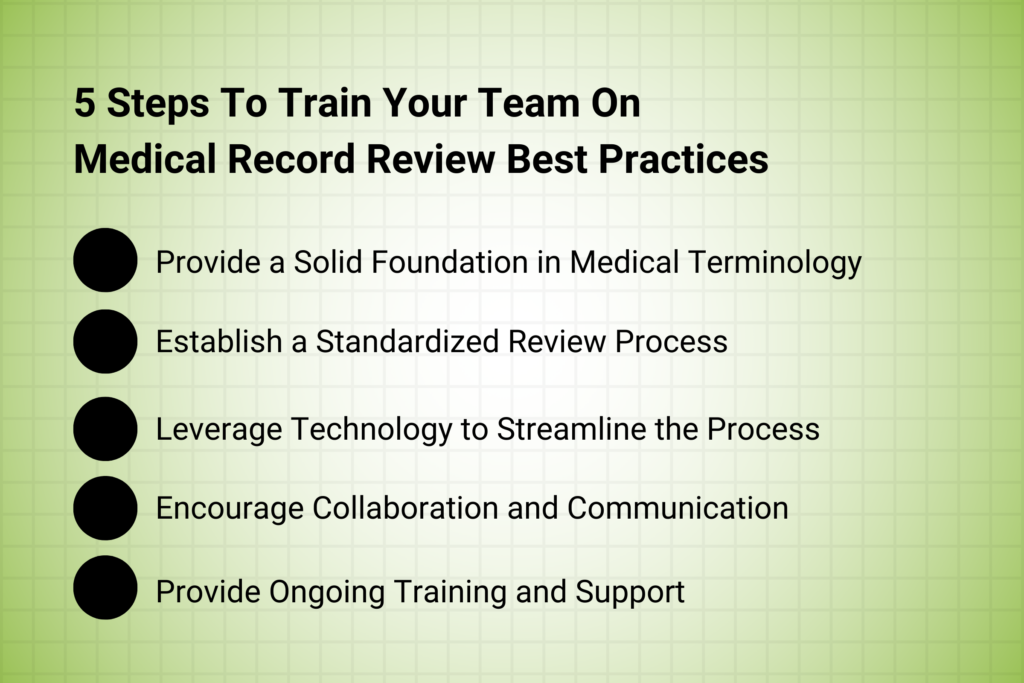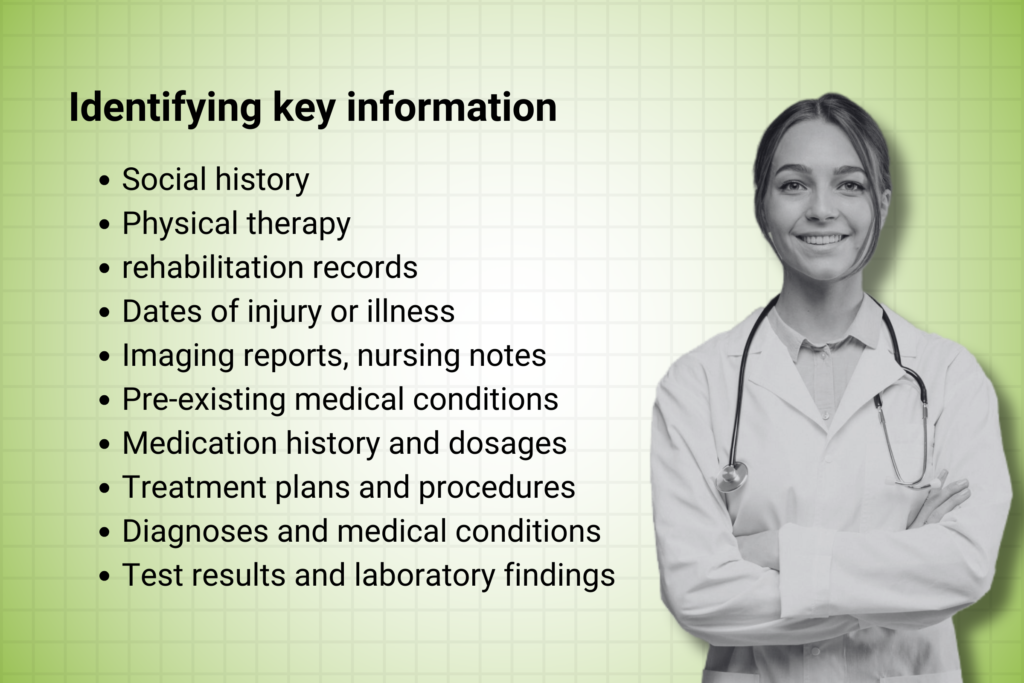5 Steps to Train Your Team on Medical Record Review Best Practices
As a law firm specializing in personal injury, medical malpractice, or mass tort cases, your team’s ability to effectively review medical records is crucial to the success of your cases. However, with the complexity of medical terminology and the sheer volume of records involved, training your team on best practices is essential. In this post, we’ll outline five steps to help you train your team on medical record review best practices.

1. Provide a Solid Foundation in Medical Terminology
One of the most significant challenges in medical record review is understanding the language of healthcare. Your team needs to be well-versed in common medical terms, abbreviations, and diagnostic codes. Begin by providing comprehensive training on medical terminology, focusing on the areas most relevant to your practice areas. Encourage your team to create a reference guide they can use throughout the review process.
2. Establish a Standardized Review Process
Consistency is key when it comes to medical record review. Develop a standardized process that your team can follow, ensuring that no critical details are overlooked. This process should include steps such as:
- Organizing records chronologically
- Identifying key information (e.g., dates of injury, diagnoses, treatments)
- Spotting inconsistencies or discrepancies
- Summarizing findings

By standardizing the review process, you can ensure that your team is working efficiently and effectively, producing consistent results across cases.
3. Leverage Technology to Streamline the Process
Technology can be a powerful ally in medical record review. Train your team on the use of tools such as optical character recognition (OCR) software, electronic medical record (EMR) systems, and data analytics platforms. These tools can help your team save time, improve accuracy, and uncover valuable insights that may impact your cases.
4. Encourage Collaboration and Communication
Effective collaboration and communication are essential for successful medical record review. Train your team on how to work together, share information, and communicate their findings effectively. Utilize collaboration platforms that allow your team to annotate records, share comments, and discuss cases in real-time.
5. Provide Ongoing Training and Support
Medical record review is an ongoing process, and your team’s skills and knowledge need to evolve accordingly. Provide regular training sessions to keep your team up-to-date on the latest best practices, changes in medical terminology, and advancements in technology. Additionally, offer support and guidance throughout the review process, ensuring that your team feels confident and empowered to tackle even the most complex cases.
By following these five steps and investing in the training and development of your team, you can ensure that your law firm is well-equipped to handle the challenges of medical record review. Remember, a well-trained team is a key asset in delivering successful outcomes for your clients.
If you’re looking for additional support in training your team or conducting medical record reviews, consider partnering with experts in the field. At Netmark Medical Record Review , we offer comprehensive support services tailored to the needs of law firms. Our team of professionals can help you implement best practices, and leverage technology to streamline your medical record review process.

